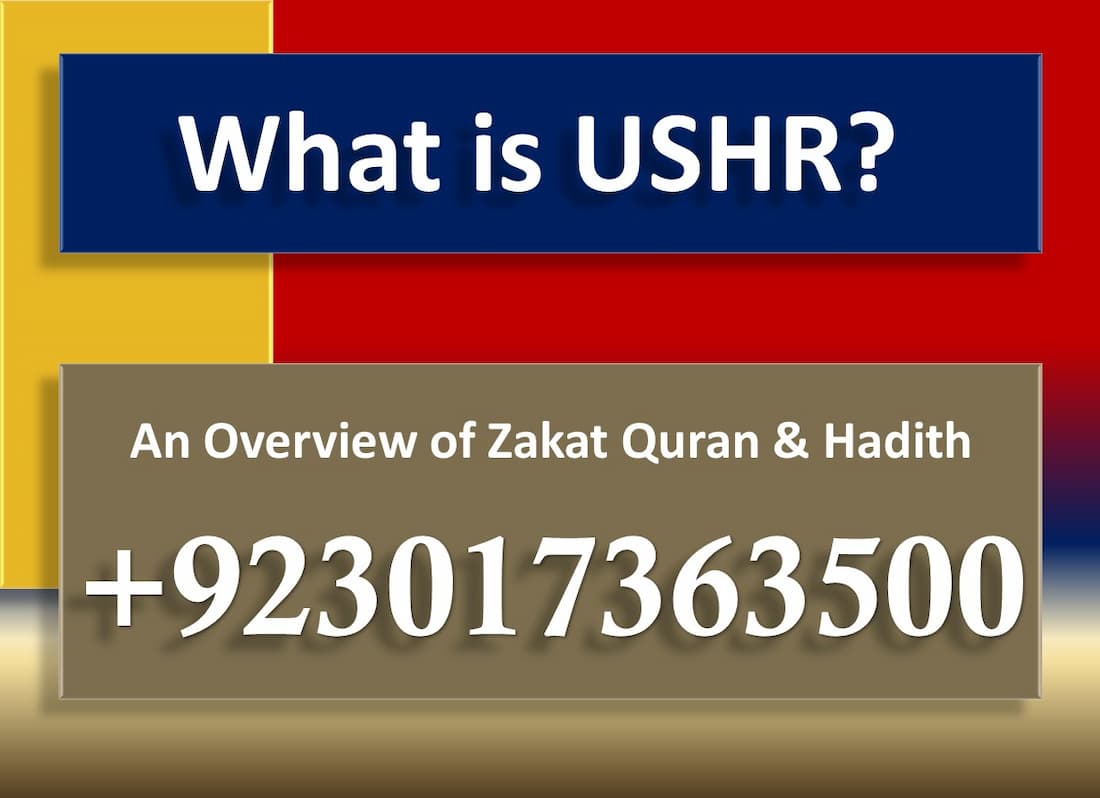Question: What is Ushr ?
Answer: Zakah paid for the agricultural produce which has been grown for the purpose of obtaining benefit from land is called Ushr. (Fatawa-e-Hindiyyah, vol. 1, pp. 185) Question: Why is the Zakah of land known as Ushr?Answer: Usually, one-tenth (1/10) part of the agricultural produce of the land is given as Zakah. Therefore, it is called Ushr (i.e. onetenth part).
The excellence of Ushr
Question: What is the excellence of giving Ushr?
Answer: There are glad tidings of the reward in the Hereafter for those who pay Ushr, as Allah has stated in the Holy Quran: And whatever you spend in the path of Allah, He will give more in return. And He is The Best Provider [Translation of Quran (Kanz-ul-Iman)](Part. 22, Surah As-Saba, Ayah 39)
It is stated in Surah Al-Baqarah:The example of those who spend their wealth on the path of Allah is similar to a grain which has sprouted seven ears (of wheat) and each ear contains a hundred grains, and Allah may increase this many a time for whomsoever He desires, and Allah is All-Encompassing, AllKnowing. Those who spend their wealth in the path of Allah, and after spending they do not boast of their favour nor taunt; their reward is with their Lord; they shall have no fear nor shall they grieve. [Translation of Quran (Kanz-ul-Iman)](Part. 3, Surah Al-Baqarah, Ayah 261 – 262)
In order to encourage the Ummah, at various places, the Beloved Rasool has also mentioned many virtues of spending in the way of Allah: Sayyiduna Hasan has narrated that the Beloved Rasool said: Put your wealths in strong fortresses by giving Zakah, and treat your sick people with Sadaqah, and seek help from ‘Du’a and weeping’ upon facing a difficulty. (Marasil Abi Dawood, pp. 8)
Moreover, Sayyiduna Jabir has narrated that the Beloved Rasool said: Certainly, Allah has removed evil from the one who has paid Zakah of his wealth. (Al-Mu’jam-ul-Awsat, vol. 1, pp. 431, Hadees 1579)
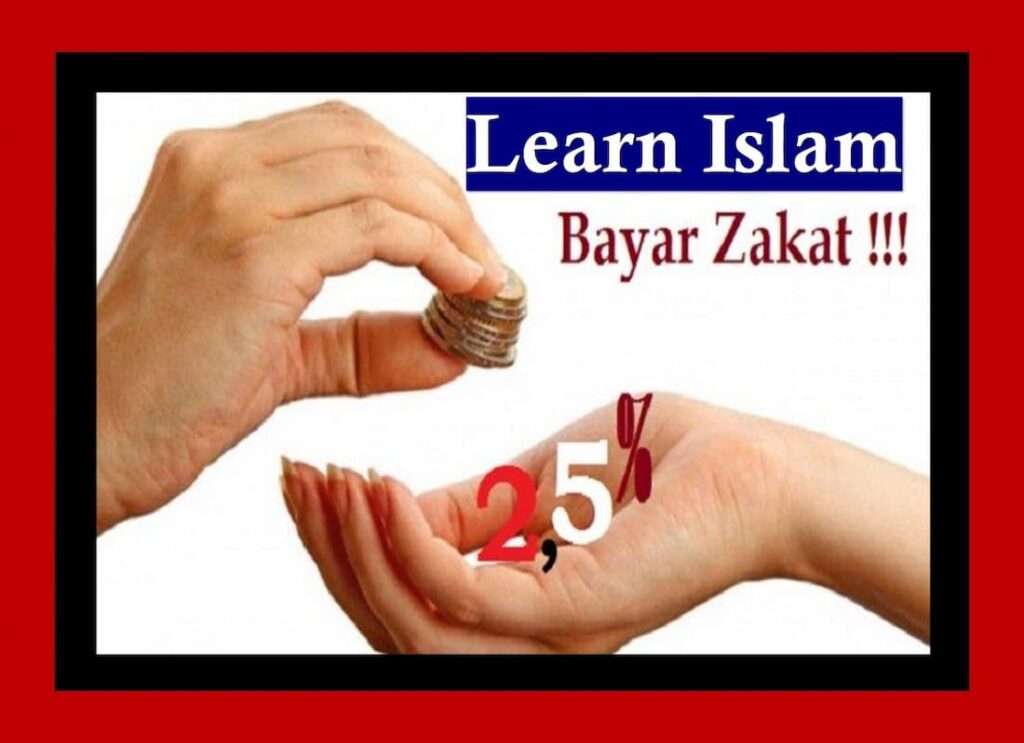
The Dire consequences of not giving عشر
Question: What are the dire consequences of not giving عشر?
Answer: Dire warnings have been mentioned in the Holy Quran and blessed Ahadees for the one who does not give a specifics form of Zakat . Allah has stated: Sayyiduna Abu Hurayrah has narrated that the Beloved Rasool said: The person whom Allah has given wealth and he does not pay its Zakah, on the Day of Judgement, that wealth will be converted into the form of a bald snake which will have two spots on its head; that snake will be put around his neck after being made a collar. Then [it] will hold the corners of his lips and say: ‘I am your wealth, I am your treasure.’ Thereafter, the Beloved Rasool recited the following Ayah:
And those who act miserly in respect to that, which Allah has bestowed upon them by His grace, must never think that it is good for them; rather, it is bad for them. Soon, in which they were miserly, shall be a collar (in the form of a snake) around their necks on the Day of Resurrection. [Translation of Quran (Kanz-ul-Iman)](Part. 4, Surah Aal-Imran, Ayah 180) (Sahih Bukhari, vol. 1, pp. 474, Hadees 1403) Sayyiduna Bareedah has narrated that the Beloved Rasool (peace be upon him) said: The nation which will not give Zakah, Allah will make it suffer from drought. (Al-Mu’jam-ul-Awsat, vol. 3, pp. 275, Hadees 4577)
Sayyiduna Ameer-ul-Mu’mineen Umar Farooq-ul-A’zam ” has narrated that the Beloved Rasool said: The wealth that gets destroyed in the land and sea, gets destroyed because of not giving Zakah. (Kanz-ul-Ummal, vol. 6, pp. 131, Hadees 15803)
For which agricultural produce is Ushr Wajib?
Question: For which agricultural produce of land is عشر Wajib?
Answer: The items whose agricultural produce is for the purpose of gaining benefit from the land, whether it is grain, fruits, or vegetables, etc. For example, wheat, barley, rice, sugarcane, cotton, sorghum, rice crop, millet, peanut, corn, sunflower, mustard seeds, alfalfa, etc. lie under the category of grain.
Melon, mango, guava, orange, loquat, apple, sapodilla, pomegranate, pear, Japanese fruit, papaya, coconut, watermelon, falsah [a fruit like blackcurrant], jamun [a fruit like blackberry], lychee, lemon, apricot, peach, dates, plum, pineapple, grapes, etc. lie under the category of fruits.
Armenian cucumber, round gourd, bitter gourd, okra, ridge gourd, potato, tomato, green chilli, capsicum, mint, cucumber, armenian cucumber (fresh), taro, mustard, cauliflower, cabbage, turnip, carrot, beetroot, peas, onion, garlic, spinach, coriander, different types of saag, fenugreek, aubergine, etc. lie under the category of vegetables.
Ushr (i.e. one-tenth part) or half-Ushr (i.e. one-twentieth part) is Wajib from the agricultural produce of all the aforementioned items. (Fatawa-e-Hindiyyah, vol. 1, pp. 186)
In Surah al-An’aam, Allah has stated: And pay the due (Ushr) from it on the day it is harvested. [Translation of Quran (Kanz-ul-Iman)](Part. 8, Surah Al-An’aam, Ayah. 141) A’la Hadrat Imam Ahmad Raza Khan has stated: According to most of the Mufassireen [Quranic exegetes] such as Sayyiduna Ibn Abbas, Taa’oos, Hasan, Jabir bin Zayd and Sa’eed Bin Al-Musayyab this ‘due’ refers to Ushr. (Fatawa-e-Razawiyyah, vol. 10, pp. 65) The Beloved Rasool has stated: There is Ushr or half-Ushr in everything produced by the earth. (Kanz-ul-Ummal, vol. 6, pp. 140, Hadees 15873)
Sayyiduna Jabir has narrated that the Beloved Rasool said: There is Ushr (i.e. giving one-tenth part is Wajib) for the fields which receive water through rain and river, and there is half-Ushr (i.e. one-twentieth part is Wajib) for the fields which are watered through camels. (Sahih Muslim, pp. 488, Hadees 981)
Question: What is meant by half-عشر?
Answer: Half-عشر refers to one-twentieth (1/20) part. (Bahar-e-Shari’at, vol. 1, Part. 5, pp. 916)
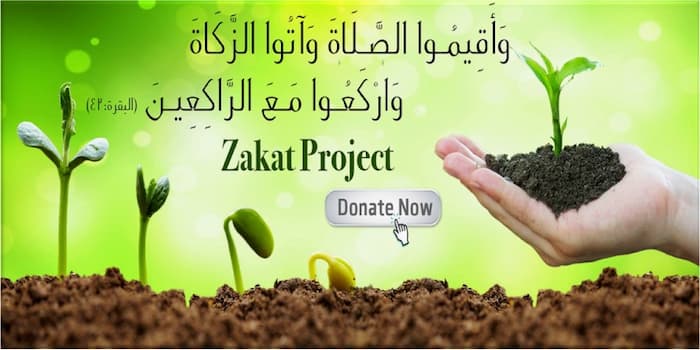
Ushr for the honey produced?
Question: Will Ushr be given also for the honey produced on the land of عشر?
Answer: Yes. (Fatawa-e-Hindiyyah, vol. 1, pp. 186)
For which agricultural produce is عشرnot Wajib?
Question: For which agricultural produce is عشر not Wajib?
Answer: There is no عشر for the items whose produce is not for the purpose of gaining benefit from land. For example, fuel, grass, cane, reed, Jhao (a riverine plant used to make baskets), date palm leaves, etc. Besides these, the seeds of every type of vegetable and fruit as their agricultural produce is for the purpose of obtaining vegetables and fruits, not the seeds.
Moreover, there is no عشر for the seeds used as medicine such as the seeds of frankincense tree, fenugreek, nigella, etc. Likewise, عشر is not Wajib for the things which are attached to land such as trees, and the things which are produced by trees such as gum.
However, if grass, cane, Jhao (a riverine plant used to make baskets), etc. are for the purpose of obtaining the benefits of land and the land has been dedicated for them, then عشر is Wajib for them as well. There is no Ushr for cotton plants and aubergine plants but there is Ushr for the agricultural produce of cotton and aubergine obtained from them. (Durr-e-Mukhtar, vol. 3, pp. 315; Fatawa-e-Hindiyyah, vol. 1, pp. 186)
The minimum amount for Ushr to become Wajib
Question: What is the minimum amount of grain, fruits and vegetables necessary for عشر to become Wajib?
Answer: There isn’t any specific amount of grain, fruits and vegetables for عشر to become Wajib. In fact, whatever amount of grain, fruits and vegetables is obtained from the land, it will be
Wajib to give Ushr or half-Ushr for it. (Fatawa-e-Hindiyyah, Al-Marja’-usSabiq)
Ushr on a Na-Baligh or an insane person
Question: If the owner of the agricultural produce of these items is a Na-Baligh or an insane person, will he have to give عشر as well?
Answer: Since عشر is given for the agricultural produce of land, whosoever is the owner of this agricultural produce will give Ushr even if he is a Na-Baligh or an insane person. (Fatawa-e-Hindiyyah, vol. 1, pp. 185)
Ushr on a debtor
Question: Is a debtor exempted from Ushr?
Answer: A debtor is not exempted from Ushr. Therefore, if a person purchased land after borrowing money or the cultivator was already a debtor or he cultivated [crops] after borrowing money, in all of these cases, Ushr is Wajib on the debtor as well. (Durr-e-Mukhtar Wa-Radd-ul-Muhtar, vol. 3, pp. 314)
Allamah Aalam Bin ‘Alaa’ al-Ansari has stated: Contrary to Zakah, Ushr becomes Wajib on a debtor as well. (Fatawa-e-Tataar Khaniyah, vol. 2, pp. 330)
Ushr on a Shar’i Faqeer
Question: Is Ushr Wajib on a Shar’i Faqeer as well?
Answer: Yes, Ushr is Wajib on a Shar’i Faqeer as well because the reason for ‘Ushr becoming Wajib’ is the actual agricultural production from Zameen-e-Naami (land capable of agricultural production). In this matter, it doesn’t make any difference whether the owner is a Ghani or a Faqeer. (‘Inayat-wal-Kifayah, vol. 2, pp. 188)
Is the completion of a year a condition for Ushr or not?
Question: Is the completion of a year a condition for Ushr to become Wajib?
Answer: The completion of a year is not a condition for Ushr to become Wajib. In fact, if there is agricultural production a few times in a year on the same farm, Ushr is Wajib each time. (Durr-e-Mukhtar Wa-Radd-ul-Muhtar, vol. 3, pp. 313)
The Ushr of different fields
Question: Different methods are employed to provide water to different fields. Is Ushr (i.e. only one-tenth) Wajib for every type of field?
Answer: Its details are as follows:
Ushr, i.e. one-tenth part is Wajib for the field that receives water through rain, a canal or stream (without paying the charges).
Half-Ushr, i.e. one-twentieth part is Wajib for the field which is watered through a well bucket (or through one’s own tube well), etc. If the field is watered by purchasing water (of a canal, a tube ▪ well, etc.), i.e. the water is owned by someone and the field is watered after purchasing it from him, even then, half-Ushr is Wajib.
If a field receives water through rain for some days and it is watered through a well bucket (or through one’s own tube well), etc. for some other days, Ushr is Wajib in case the field receives water mostly through rain and it is watered sometimes through a well bucket (or through one’s own tube well), etc.; otherwise, half-Ushr is Wajib. (Durr-e-Mukhtar Wa-Radd-ul-Muhtar, vol. 3, pp. 316)
The Ushr of rented fields
Question: Will there be Ushr for the agricultural produce of a rented field as well?Answer: Yes, there will be Ushr for the agricultural produce of a rented field as well.
Question: Who will give this Ushr?
Answer: It will be Wajib on the cultivator to give this Ushr. (Radd-ul-Muhtar, vol. 3, pp. 314)
Who will give Ushr if the owner of a land does not cultivate it himself?
Question: If the owner of a land does not take part in the cultivation himself but involves farmers in it, will Ushr be [Wajib] on the farmer or the owner of land?
Answer: The two cases in this regard are as follows:
If a farmer here refers to the person who takes land [for cultivation] with an agreement of a share in the agricultural produce, i.e. a half, one-third, etc. of the agricultural produce belongs to the owner of the land, and the rest to the farmer, then Ushr will be Wajib on both of them according to their share. In Bahar-e-Shari’at, Maulana Mufti Muhammad Amjad Ali A’zami has stated: If the land of Ushr is given with an agreement of a share in the agricultural produce, there is Ushr on both. (Bahar-e-Shari’at, vol. 1, Part. 5, pp. 921)
If a farmer here refers to the person to whom the owner of the land rents out the land, for example, Rs.50,000 per acre, then there will be Ushr on the farmer, not on the owner of the land. (Bida’-us-Sana’, vol. 2, pp. 84)
Ushr of jointly owned land
Question: Who will give Ushr for jointly owned land?
Answer: Being the owner of land is not a condition for giving Ushr; in fact, being the owner of agricultural produce is a condition. Therefore, a person will give Ushr of as much as agricultural produce he owns. It is stated in Fatawa Shaami: Being the owner of land is not a condition for Ushr to become Wajib; in fact, being the owner of agricultural produce is a condition because Ushr becomes Wajib on agricultural produce, not on land. Being the owner of land and not being the owner of land is the same [in this regard]. (Radd-ul-Muhtar, vol. 3, pp. 314)
Ushr for home-grown agricultural produce
Question: Will there be Ushr on the agricultural produce obtained from a house or a graveyard?
Answer: Ushr is not Wajib on the agricultural produce obtained from a house or a graveyard. (Durr-e-Mukhtar, vol. 3, pp. 320)
The deduction of expenses before giving Ushr
Question: Will Ushr be given for the total agricultural produce or for the remaining amount of agricultural produce after deducting the expenses, etc.?
Answer: For the agricultural produce on which Ushr or half-Ushr is Wajib, Ushr or half-Ushr of the total agricultural produce will be given. It is wrong to assume that Ushr or half-Ushr will be given of the remaining amount of agricultural produce after deducting the cost of cultivation, plough, bull, the salaries of security personnel and workers, or the expenses of seeds, fertiliser, insecticides and pesticides, etc. (Durr-e-Mukhtar Wa-Radd-ul-Muhtar, vol. 3, pp. 317)
Question: Will the land tax paid to the government be deducted from the agricultural produce or not?
Answer: No, even the land tax will not be separated from the agricultural produce. In fact, calculation of Ushr will be made by including it as well.
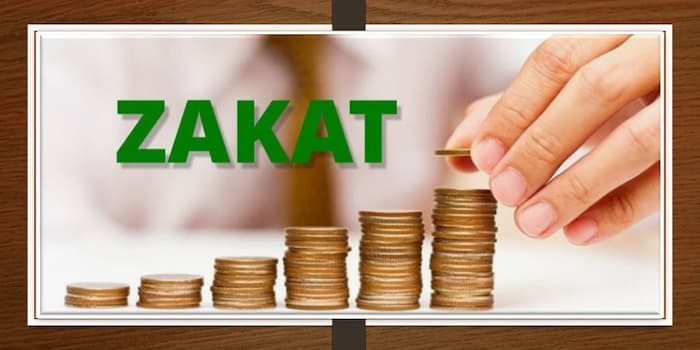
Giving Ushr
Question: When will Ushr be given?
Answer: When the agricultural produce is obtained, i.e. the produce ripens or the fruits grow to the extent that benefit can be obtained from them, Ushr will become Wajib. Ushr will have to be given by making calculation after harvesting the agricultural produce or picking fruits. (Durr-e-Mukhtar Wa-Radd-ul-Muhtar, vol. 3, pp. 321)
Giving Ushr in advance
Question: Can Ushr be given in advance?
Answer: There are a few cases regarding this matter which are as follows:
- When the agricultural produce becomes ready, it is permissible to give its Ushr in advance.
- If [Ushr] is given after sowing the seeds when the agricultural produce appears, it is still permissible.
- If [Ushr] is given after sowing the seeds before the appearance of agricultural produce, it is not permissible to give [Ushr] in advance according to the more authentic opinion.
- If [the Ushr] is given before the appearance of fruits, it is not permissible to give it in advance; giving it after the appearance of fruits is permissible. (Fatawa-e-‘Aalamgeeri, vol. 1, pp. 186)
Note: Even though it is permissible in some of the aforementioned cases to give Ushr in advance, it is Afdal [better] to give Ushr after obtaining the agricultural produce. (Al-Bahr-ur-Raiq, vol. 2, pp. 392)
The meaning of ‘the appearance of fruits’ and ‘agricultural produce becomes ready’
Question: What is meant by ‘the appearance of fruits’ and ‘agricultural produce becomes ready’?
Answer: It means that the agricultural produce becomes ready and the fruits ripen to the extent that there remains no fear that they will spoil, dry, etc. even if they have not grown to the extent that they can be picked or harvested. (Fatawa-e-Razawiyyah, vol. 10, pp. 241)
The ruling on Ushr if the agricultural produce has been sold
Question: Will Ushr be [Wajib] on the seller or the buyer if the fruits are sold after they appear and the agricultural produce becomes ready?
Answer: In this case, Ushr will be [Wajib] on the seller. (Fatawa-e-Razawiyyah, vol. 10, pp. 241)
Delaying giving Ushr
Question: What if someone delays giving عشر?
Answer: Basically, the Zakah of agricultural produce is termed as عشر. Therefore, the laws of giving Ushr are the same as the laws of the payment of Zakah. So, the person who delays giving Ushr without any valid reason is a sinner and his testimony is not accepted. (Fatawa-e-Hindiyyah, vol. 1, pp. 170)
Question: What should be done if someone does not give Ushr despite the fact that it becomes Wajib?
Answer: The Islamic ruler can forcefully take Ushr from the person who does not give Ushr willingly. Ushr will be regarded as paid in this case as well but the person is not deserving of Sawab [reward]. However, he becomes deserving of Sawab if he gives it willingly. (Fatawa-e-Hindiyyah, vol. 1, pp. 185)
Note: Remember! Only the Islamic ruler has the authority to take Ushr forcefully; the general public do not have this authority. In such case, persuade the person to give Ushr and make him realise [the consequences of] the displeasure of Allah. Moreover, it will be greatly beneficial to give the booklet ‘Ushr Kay Ahkam’ or this book ‘Faizan-e-Zakat’ as a gift to such people for studying,
Using agricultural produce before giving Ushr
Question: Can agricultural produce be used before giving عشر?
Answer: It is not permissible to use anything from agricultural produce unless عشر is given or separated from agricultural produce. If a person has used it [before giving Ushr], he should pay compensation equal to the amount of عشر of the quantity he has used. However, if a person has used a small amount, it is forgiven. (Durr-e-Mukhtar Wa-Radd-ul-Muhtar, vol. 3, pp. 321-322)
What if a person passes away before giving Ushr?
Question: If a person on whom عشر is Wajib passes away and the agricultural produce is also present, will Ushr be given from it?
Answer: In this case, Ushr will be given from the agricultural produce if it is present. (Fatawa-e-Hindiyyah, vol. 1, pp. 185)
Giving money as عشر
Question: Is it necessary to give only agricultural produce as Ushr or can its price also be given?
Answer: From the present agricultural produce, separating the complete Ushr of the total amount of grain or fruits or giving its complete price (as Ushr) are both permissible methods. (Fatawa-e-Mustafiyyah, pp. 298)
What if a person has not given Ushr for a long time?
Question: What should be done if a person has not given عشر for many years?
Answer: He should repent for withholding عشر, and after calculating the عشر of the previous years, he should keep on giving it as per his financial capacity. (Fatawa-e-Mustafiyyah, pp. 298)
What if a person does not cultivate land?
Question: Will Ushr still be Wajib on a person if he does not cultivate land despite being capable of it?
Answer: If someone does not cultivate land despite being capable of it, it is not Wajib on him to give Ushr because there is no agricultural produce; Ushr becomes Wajib for the agricultural Produce of land, not for the land itself. (Radd-ul-Muhtar, vol. 3, pp. 323)The ruling on Ushr if agricultural produce gets destroyed
Question: Will عشر be Wajib if agricultural produce gets destroyed due to a certain reason?
Answer: If a person sows seeds but the agricultural produce gets destroyed, for example, it gets flooded, or gets destroyed due to fire, the heat or the cold, Ushr will stand remitted in all these cases provided that the complete agricultural produce gets destroyed. However, if some of it remains, the عشر of that remaining amount will be taken.
Moreover, (عشر) will not stand remitted if animals eat the agricultural produce. For (Ushr) to stand remitted, it is a condition that the field is not capable of producing agricultural produce again afterwards during the same year; it is also a condition that [the agricultural produce] gets destroyed before picking or harvesting, otherwise [عشر] will not stand remitted. (Radd-ul-Muhtar, vol. 3, pp. 323)
![zakat muslim, الزكاة, nisab meaning, al Mualim, Quranmualim, Vislam, Prophet Muhammad family tree. Sunni Islam, , Islam facts],](https://www.quranmualim.com/wp-content/uploads/2019/06/What-is-USHR-according-to-Quran-and-Hadithc.jpg)
To whom should Ushr be given?
Question: To whom should Ushr be given?
Answer: Since the Zakah of the agricultural produce of land is termed as Ushr, Ushr can be given to the people to whom Zakah can be given. (Fatawa-e-Khaniyah, vol. 1, pp. 132)
Kharif crops, fruits and vegetables
Kharif: It refers to the crops of the summer season which are sown in the beginning of the summer season, March-June, and harvested at the end of the summer season and in the autumn season, AugustNovember.
Important Kharif crops
Cotton, sorghum, rice crop, millet, peanut, corn, sugarcane and sunflower are important Kharif crops. Mung dal (lentil), maash dal, and black-eyed beans are cultivated in the Kharif season.
Vegetables: Bottle gourd, round gourd, bitter gourd, okra, ridge gourd, potato, tomato, green chilli, capsicum, mint, cucumber, Armenian cucumber (fresh), and taro are included in the crops of summer season.
Fruits: Melon, watermelon, mango, falsah [a fruit like blackcurrant], jamun [a fruit like blackberry], lychee, lemon, apricot, peach, dates, plum, pineapple, and grapes are included in the crops of summer season.
Rabi crops, fruits and vegetables
Rabi: It refers to the crops of the winter season which are sown in the beginning of the winter season, October-December, and harvested at the end of the winter season and in the spring season, JanuaryApril.
Important Rabi crops: Wheat, chickpeas, barley, berseem, mustard, mustard seed, alfalfa and masoor dal are included in the important Rabi crops.
Vegetables: Cauliflower, cabbage, turnip, carrot, beetroot, peas, onion, garlic, mooli, spinach, coriander, different types of saag, and fenugreek are included in the Rabi crops.
Fruits: Orange, loquat, jujube, guava, apple, sapodilla, pomegranate, pear, persimmon (Japanese fruit), papaya and coconut are included in the Rabi crops. Usually, honey is also obtained with the Rabi crops [i.e. in the same time period].
The Dire consequences of begging
Dear Islamic brothers! Begging is not considered wrong in the present era. Healthy people who can earn a livelihood for themselves as well as for their household are found begging. Remember! Without Shar’i permission, begging is Haraam and an act that leads towardsHell. (Fatawa-e-Razawiyyah, vol. 10, pp. 253)
6 sayings of the Beloved Rasool regarding the condemnation of begging
- Sayyiduna Abdullah Bin Umar has narrated that the Beloved Rasool said: A person amongst you will keep on begging until he meets Allah in such state
that there will not be even a single piece of flesh on his face. (Sahih Muslim, pp. 518, Hadees 1040)
- Sayyiduna Samurah Bin Jundub has narrated that the Beloved Rasool ٖsaid: Begging is a type of scratch, as a person claws at his face by begging. The one who wishes may retain this scratch on his face and the one who wishes may leave it [i.e. abandon begging]. (Sunan Abi Dawood, vol. pp. 168, Hadees 1639)
- Sayyiduna Aaiz Bin Amr ” has narrated that the Beloved Rasool said: If people knew what lies in begging [i.e. how bad it is], no one would go to anyone with [his] (Sunan Nisa’i, vol. 5, pp. 95)
- Sayyiduna Abu Hurayrah has narrated that the Beloved Rasool ٖ said: He who begs for [the purpose of] increasing wealth, begs for firebrand, so it’s up to him; he may beg for more or beg for less. (Sahih Muslim, pp. 518, Hadees 1040)
- Sayyiduna Ibn Abbas has narrated that the Beloved Rasool said: The one who has neither faced hunger nor has so many family members whose needs he cannot fulfil, opens the door of begging, [then] Allah will open the door of hunger for him from such a place which is beyond his thought. (Shu’ab-ul-Iman, vol. 3, pp. 274, Hadees 3526)
- Sayyiduna Abdullah Bin Umar has narrated that, while telling about Sadaqah and about refraining from begging, the Beloved Rasool said: The upper hand is better than the lower hand. The upper hand is the one that gives and the lower hand is the one that begs. (Sahih Muslim, 1033, pp. 515)
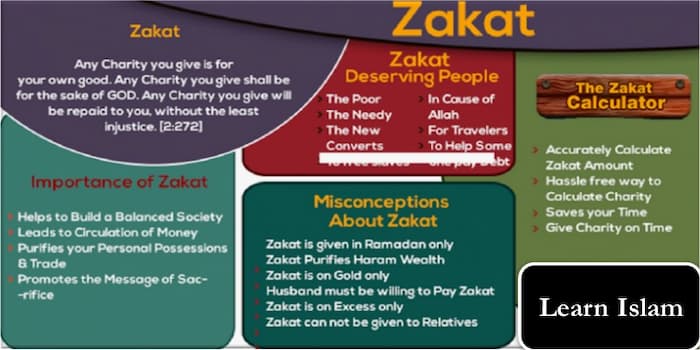
Quranmualim Latest Articles:
Printable Ramadan Mubarak , The 6 Kalimas, Best Islamic All Lesson for Kids, All Teaching Techniques , Home learning For Kids,Nursery Curriculum ,Vegetables Flashcards PDF Downloaf

